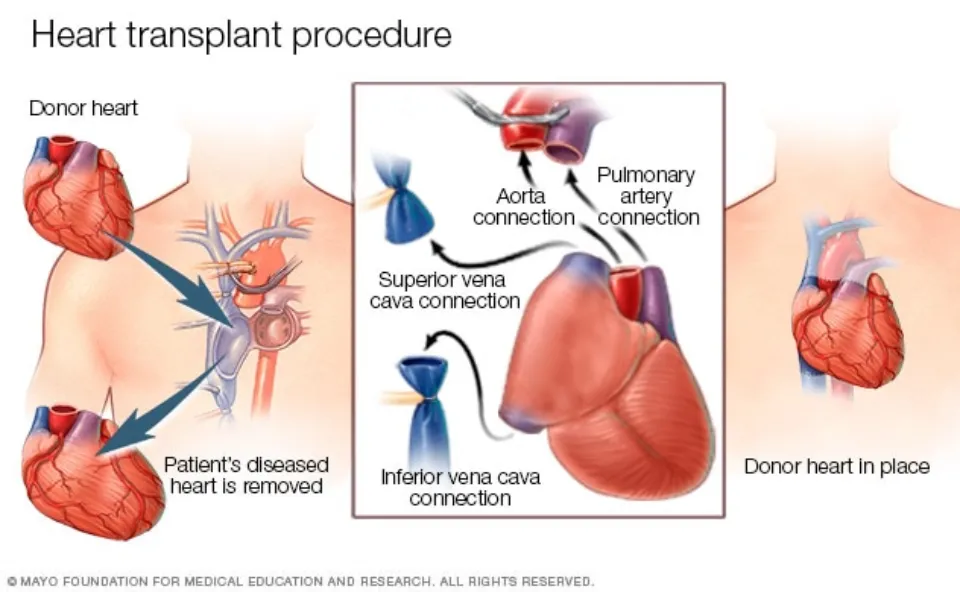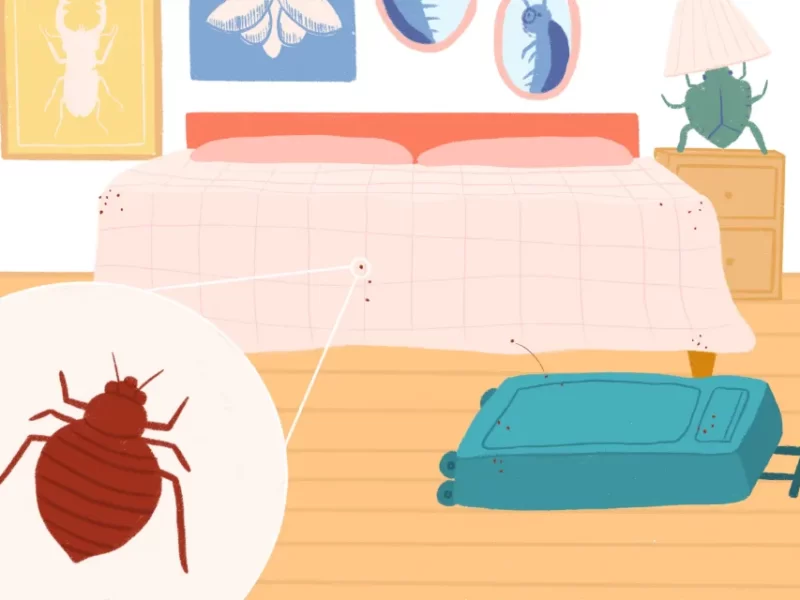A heart transplant is an operation to replace a damaged or failing heart with a healthy heart from a donor who has recently passed away. It might be advised when a person’s life is in danger as a result of their heart no longer functioning properly.
In terms of the survival rate for heart transplants, the first year following surgery is crucial. After the first year, there are only 4% more deaths each year. Recent improvements to the heart transplant survival rate can be attributed to an increased rate of survival after the first year, and specifically to improvements seen with immunosuppressant medications.
Read on to get more information about heart transplants.
The Whole Process of Heart Transplantation
As soon as a donor heart becomes available, a heart transplant must be performed.
You are unconscious during the procedure and are given a general anesthetic.
A heart-lung bypass machine will be used during the procedure to keep your blood flowing with oxygen-rich blood.
A cut is made in the middle of the chest. Your own heart is then removed, and the donor heart is connected to the main arteries and veins. The new heart should then begin beating normally.
Typically, after a heart transplant, you’ll need to stay in the hospital for 2 to 3 weeks. Within a few months, the majority of people can resume many of their regular activities.
Your transplant team can give you advice about how long you may need to avoid certain activities during your recovery.
You’ll need to have regular check-ups with your transplant team after the transplant. Additionally, you’ll need to take immunosuppressant medications for the rest of your life.
Without these medicines, your body may recognise your new heart as foreign and attack it (rejection).

6 Potential Complications of a Heart Transplant
There are a number of potential risks and post-operative complications. The most common complications include:
- Rejection: The most serious risk is that your body will reject the donor heart. Your immune system may perceive the donor heart as foreign tissue and try to reject it, causing harm to the heart. Immunosuppressants, which lower the rate of rejection, are given to every patient who has received a heart transplant. Changing the drugs can occasionally stop rejection if it already has started. You must take your medications exactly as directed by your doctor and attend all of your scheduled medical appointments in order to avoid rejection. Rejection frequently occurs in the absence of symptoms. During the first year after your transplant, you will need to have frequent heart biopsies to determine whether your body is rejecting the new heart.
- Malignancy: 33% of deaths are due to cancer. Medication that suppresses your immune system may raise your risk of developing non-lymphoma cancer, skin and lip tumors, and other types of cancer.
- Graft dysfunction: The most frequent reason for death in the first few months after a transplant is when the donor heart does not function properly, which causes this to happen.
- Chronic kidney disease: Immunosuppressants, which you must take for the rest of your life, can seriously harm your kidneys.
- Infections: Mortality rate from infections is 50%. Immunosuppressive medications reduce your ability to fight infections. Within the first year following their transplant, many heart transplant patients develop an infection that necessitates hospitalization.
- Cardiac allograft vasculopathy: Allograft vasculopathy is responsible for 17% of deaths. Following your transplant, the walls of the arteries in your heart may thicken and stiffen, resulting in cardiac allograft vasculopathy. A heart attack, heart failure, arrhythmias, or sudden cardiac death may occur as a result of this restricting blood flow through your heart.
How Long Can You Live After a Heart Transplant?
Only when more conservative options for treatment fail is it advised. When compared to the normal progression of end-stage heart failure, the global adult heart transplant survival rate is excellent at more than 85% after one year and 69 percent after five years.
For the purpose of determining the survival rate of heart transplants, the first year following surgery is crucial. After the first year, there are only 4% fewer deaths per year. A higher rate of survival after the first year, specifically due to advancements in immunosuppressant drugs, can be blamed for recent improvements in the survival rate of heart transplants.
Immunosuppressive drugs weaken the immune system’s defenses, making it less able to combat outside invaders. Patients who have had heart transplants are given these drugs to stop their immune systems from attacking the new donor heart. The administration of immunosuppressive drugs is now personalized for each patient.

How Do You Recover After a Heart Transplant?
You must follow a recovery plan after your heart transplant surgery if you want to improve your chances of staying healthy.
Medications
Following a heart transplant, you will require medication for the rest of your life. They shield your new heart from immune system assault. The term “immunosuppressants” or “antirejection drugs” refers to these medications.
Heart-healthy Diet
Your new heart will stay healthy and your risk of complications and long-term heart disease will be reduced by eating a balanced diet full of fresh fruits, vegetables, and whole grains.
Some of the medications you will be prescribed after your transplant surgery may raise your risk of diabetes, high blood pressure, high cholesterol, and weight gain, all of which could raise your risk of heart disease. Your diet is a critical factor in reducing these risk factors.
You will need to prepare food with extra care because your immune system may be weakened and you may be more susceptible to food poisoning. When handling and storing food, be cautious at all times, especially when dining out.
Exercise
Exercise can assist in reducing some of the negative effects of the medications you’ll be taking, particularly steroids. Another advantage of regular exercise is that it helps you maintain good blood pressure, cholesterol, and weight—all of which are critical for heart health.
As you exercise more, you will notice greater strength, flexibility, and coordination, which means simple tasks such as lifting objects and climbing stairs will become easier, you’ll be able to accomplish more without feeling tired.
Final Thoughts
Patients with heart transplants have some control over their recovery and the duration of their new hearts. The most crucial period is once again the first year following surgery. For the purpose of tracking their recovery and keeping an eye out for potential heart transplant rejection, patients are asked to keep appointments during this time. Symptoms are observed for indications of rejection while tissue biopsies and lab tests are carried out.
FAQs
How Long Can a Person Live With a Heart Transplant?
It is only advised after more conventional options for treatment have failed. When compared to the normal course of end-stage heart failure, the global survival rate for adults with heart transplants is excellent at more than 85% after one year and 69 percent after five years.
Can You Fully Recover from a Heart Transplant?
Recovery from heart transplant surgery typically takes three to six months. However, age and previous medical problems may cause a longer recovery period.



